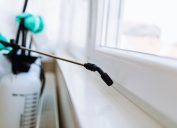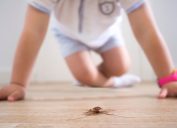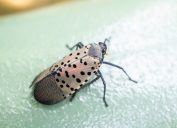This Is the Biggest Danger Lurking in Your Garage
This small critter can be the source of major problems—and expensive repairs—before you know it.
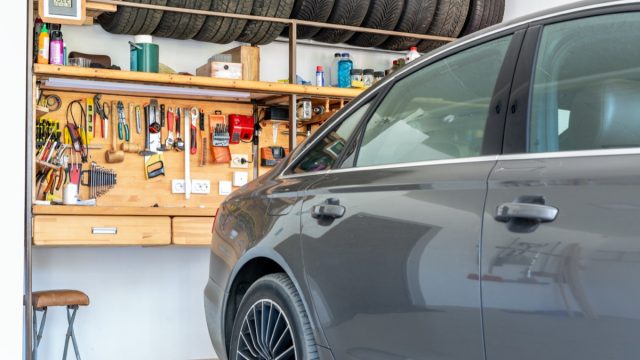
The average person does plenty to protect themselves against dangers in their home, from installing smoke and carbon monoxide detectors to ensuring their windows and doors are locked at night. However, there's a surprising source of peril that may be lurking in your home without you even realizing it. According to experts, mice and rats hiding out in your garage could be putting you and your loved ones in harm's way. Read on for more about these rodents, and for another pest to worry about, prepare to find out The Deadliest Animal to Humans in the World, which will shock you.
"The most common [types of] damage that these rodents can do to your vehicle are gnawed wires around the engine, shredded gauze in the air vents, and chewed holes in the upholstery or the non-metal engine components," says Natalie Barrett, service quality supervisor for Nifty Pest Control. (Not to mention the aesthetic damage from clawing and defecation.)
Unfortunately, when rodents nest in your car, they can cause severe automotive issues that you may not notice until it's too late.
"Mice are known to eat up wiring, and when it comes to an engine wiring harness, [this] can cause the vehicle to suffer no-start issues, cause specific components to malfunction and cause further engine damage, or even cause security issues disabling your vehicle," explains Nicole Miskelley, manager of Preventative Maintenance Repair in Marion, Illinois. She adds that the cost of replacing an engine wiring harness can be "astronomical," noting that doing so may even cost more than the vehicle is worth.
In addition, Miskelley explains that rodents can also chew through the wires controlling your car's headlights or break lights, both of which can be costly to fix, and may make your car dangerous to drive if not repaired quickly.
In some cases, rodent damage to your car's wiring can have even more devastating consequences. According to Manhattan district leader Daisy Paez, rats were the culprits behind an electrical fire that totaled a car in New York City in 2019.
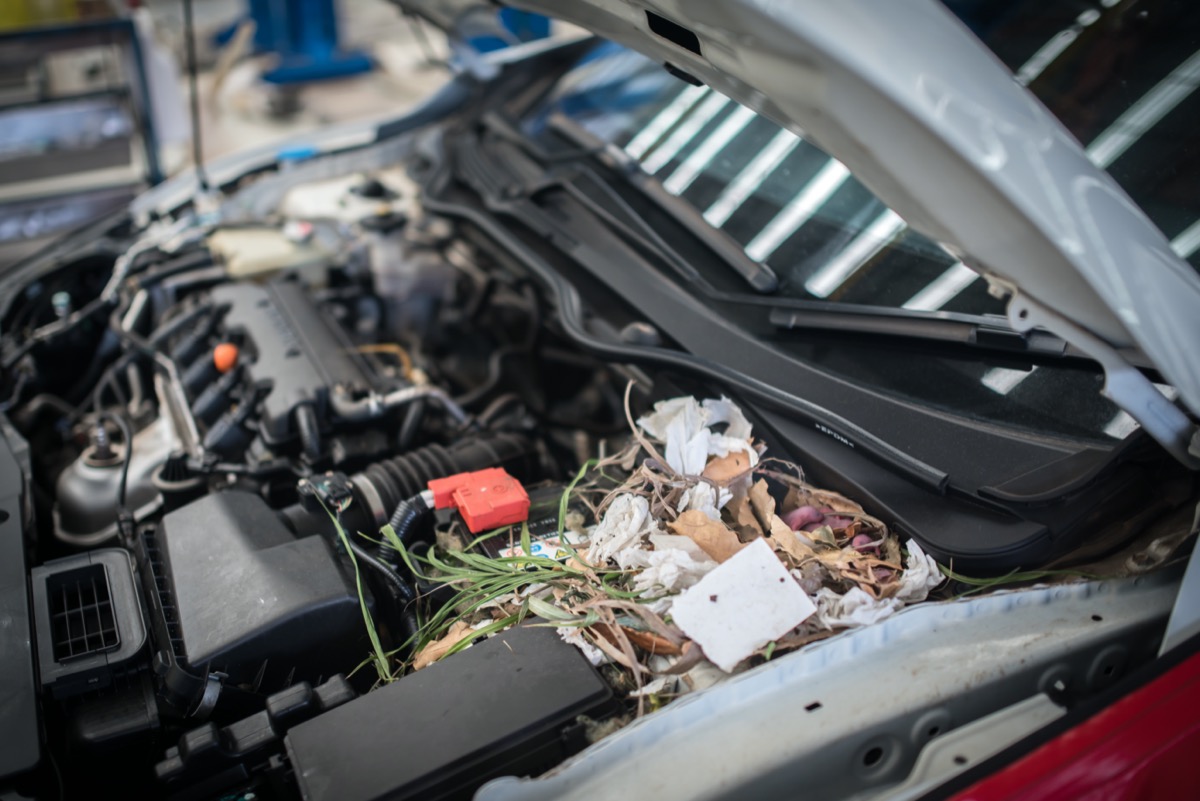
Unfortunately, with many people working from home due to the coronavirus pandemic—and, as such, many cars going unused for prolonged periods of time—it's never been easier for rodents to find opportunities to nest inside cars.
Kelsey Snell, a congressional correspondent with NPR, tweeted in late April that rats had taken up residence in her engine, and noted that her local car dealership admitted to having multiple calls about the same issue in a single week, largely due to a lack of driving.
If you do find evidence of a rodent infestation in your car or garage, Barrett recommends calling an exterminator to have the issue remedied. After all, mice and rats can carry diseases including hantavirus, salmonella, leptospirosis, and plague, among others. Plus, the CDC recently reported that, since coronavirus lockdowns began, rats have become increasingly aggressive, meaning you might not want to deal with them yourself.
Fortunately, there are also a number of ways to limit the chances rodents will make a home in your garage or car in the first place. Read on to discover what experts recommend to keep these pests at bay.
Read the original article on Best Life.
1
Move your car more often.

The easiest way to keep mice and rats from nesting in your car? Move it on a regular basis.
"No animal would consider a running vehicle with a hot engine a safe shelter," says Barrett.
2
Close any entry points around your garage.
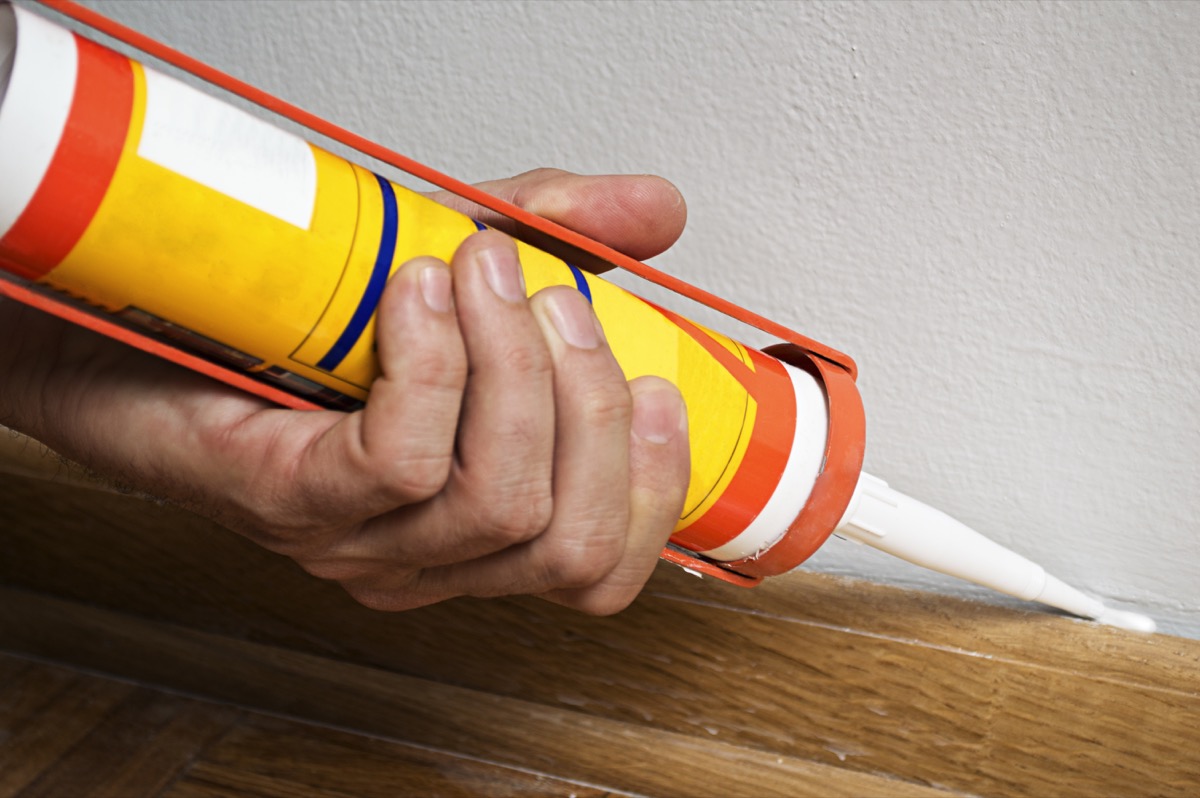
Mice and rats can travel through tiny spaces, so making sure your garage has no easy entry points is an important step in keeping these pests out of your car.
In addition to repairing any rotten boards, replacing gapping siding, and caulking around windows and doorframes, you should do "everything you can to seal the perimeter of your garage and ensure that all windows and doors are shut," says Richard Reina, product training director at CARiD.com.
3
Use moth balls.

An unpleasant or unexpected scent might be enough to keep your car rodent-free. Reina says that moth balls placed around your car can help deter pests. And for more great stories delivered to your inbox, sign up for our daily newsletter.
4
Place dryer sheets around your car.
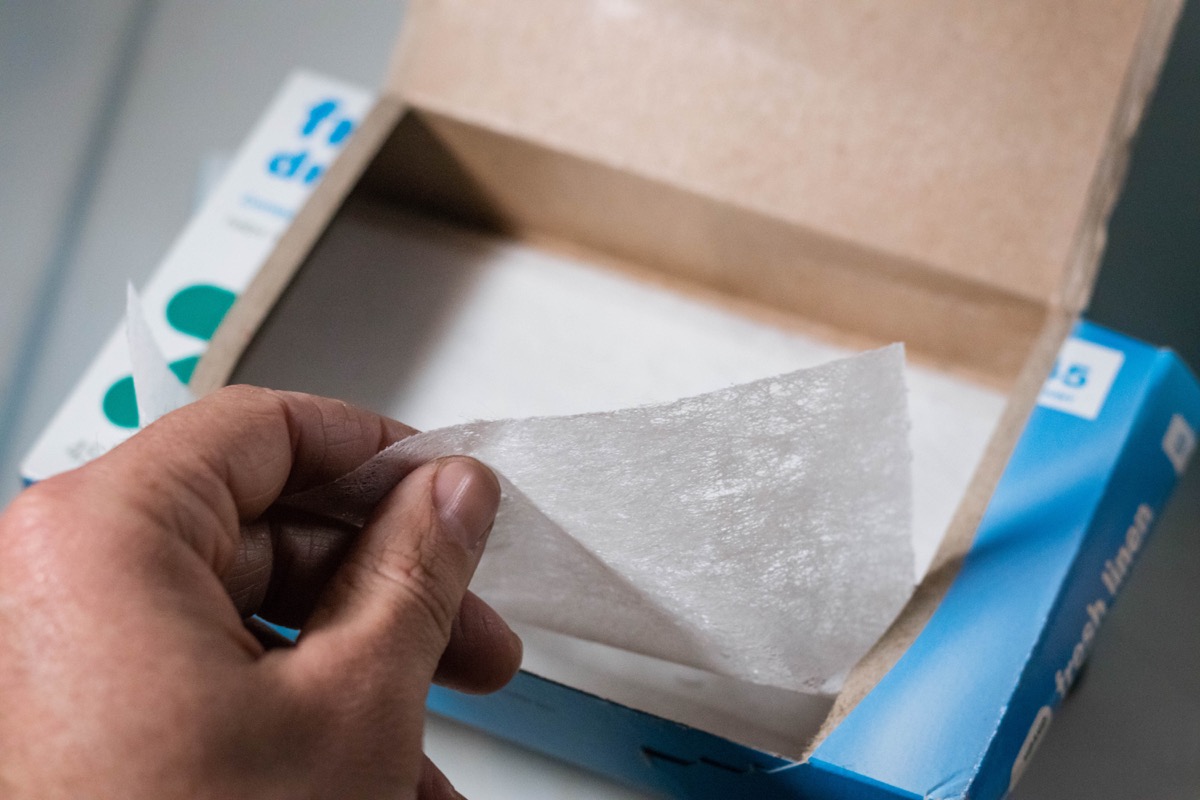
You may enjoy the smell of dryer sheets, but that scent may be enough to keep animals out of your engine. Reina says that placing dryer sheets throughout your car and under the hood is a popular home remedy for pests. However, he notes that it's important to remove any dryer sheets from your car's mechanical components before you drive it.
5
Limit additional food sources in your garage.

If you're storing food items in your garage, don't be surprised if rodents start making themselves at home.
"Don't leave pet food or bird seed in the bag," says Lauren Fix, an analyst with The Car Coach. "They need to be in sealed containers to keep rodents out."
6
Hire a professional before you see signs of a full-blown infestation.
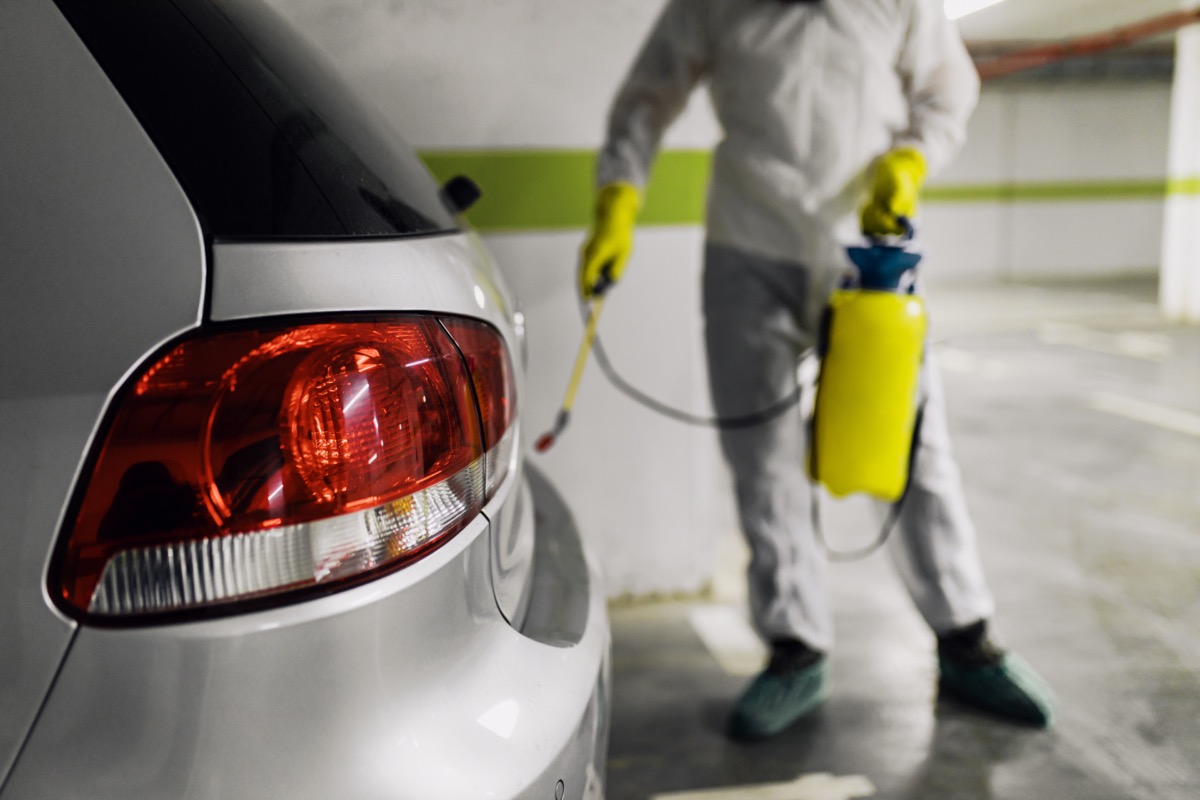
Don't wait until you've got a major rodent problem in your garage to get a professional on the case.
"Having your home on a preventative maintenance plan with a pest control company can often times catch problems before they become overblown," explains associate certified entomologist Michael Thome, a technical services manager for Ehrlich Pest Control. And if you want to avoid an expensive error on the home front, know that This Cleaning Mistake Is Ruining Your Home.

